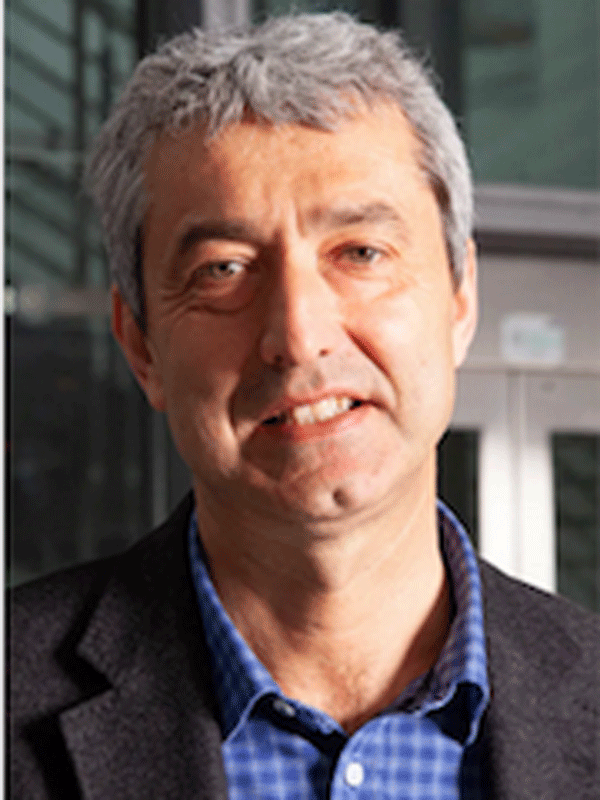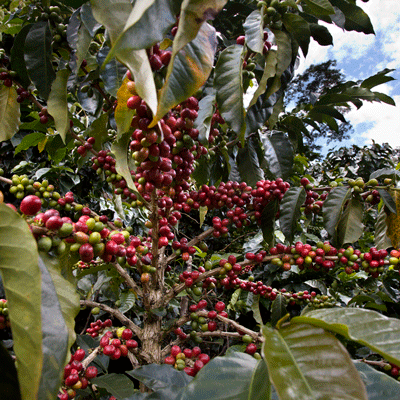
“Coffee is a product favouring sociability, friendship and conversation, and it should always be consumed with someone else.” These words of the late Ernesto Illy—Italian food chemist and the founder of illycaffè —sum up just a tiny part of the world of coffee.
From the lush coffee fields scattered over green hills worldwide to the billion cups drunk worldwide every day, in fact, the path is long, winding and not always easy.
Past trends in the way agriculture was conceived—with the overuse of chemicals—added to current challenges such as climate change and an ever-growing population that needs food (and work), are prompting coffee scientists to investigate the genetics of coffee and come up with better strategies for sustainable production.
With the idea of overcoming these challenges, UNESCO-TWAS and the Ernesto Illy Foundation have organized an international event titled: “Ernesto Illy Colloquia: Sustainability challenges in coffee growing worldwide”.
It will take place from 27 to 29 September, gathering 25 scientists active in coffee research, and 23 students currently attending the Master's Degree in Economics and Science of Coffee Ernesto Illy, most of them from the least developed countries, where coffee is mainly produced. Through this event, the Foundation wants to remember and fulfil Ernesto Illy’s legacy, pioneering sustainability ideas and practices.
One of the guest speakers will be Vittorio Venturi, Group Leader of the Bacteriology Group and Scientific Coordinator of the International Centre for Genetic Engineering and Biotechnology (ICGEB) headquartered in Trieste, Italy.
Here below is an interview with Venturi, released in anticipation of the event.
Coffee is an important commodity for developing countries. What do we know about the genetics of the about 130 existing varieties, and why knowing their DNA is important?
Of the many existing varieties, the arabica—the DNA of which was sequenced a few years ago by a consortium of partners, including illycaffè and the University of Trieste—holds a prominent position in the global market. Knowing its genome will sharpen our understanding of how plantations could react to climate change and other human-driven factors. Some of the best arabica cultivars come from Ethiopia, Guatemala and India: these places differ in land features, temperatures and precipitations. Knowing the DNA sequence of these plants will allow identifying the genes that might shield them from pathogens and climate stressors, offering better support to the farmers in their daily efforts.
In the last decades, a new strategy termed 'precision agriculture' has gained momentum. What is it, and why is it important for coffee?
Precision agriculture, or smart agriculture, is a farming strategy that takes into account many parameters, including precipitations, wind, moisture levels, soil features, organic matter content and nutrients amounts. These data are collected by real-time sensors and agricultural drones and used to make models that allow fairly precise predictions. Coffee farmers should learn about these technologies and start using them, so as to grow better crops in the long run. By monitoring the health of lands and their nutrition status, agriculture could become much more sustainable, avoiding the use of chemicals for growing crops.
Today, the role of bacteria in keeping the soil healthy is well established. Why are they important?
Bacteria play a pivotal role for plants: they confer resistance to pathogens, help nutrients uptake from the soil, stimulate the production of growth hormones, and increase stress tolerance. Plants literally recruit these 'good bacteria' through a complex system of chemical signalling. If we analyse the soil, we find tens of thousands of good bacteria, which are collectively called rhizosphere microbiome, because they live in close proximity to the roots, in the layer called rhizosphere.
Why is this notion useful?
If we knew how to supply the roots of plants with the right microbes, we could help plants grow healthier, and use this knowledge in a more intelligent way, using fewer chemicals than we did in the past.
Is the coffee rhizosphere any different from other plants?
Yes, indeed. Each crop has its specific signature, with some microbes that are more abundant than others. ICGEB and illycaffè have just started a collaboration aimed to understand what kind of microbes coffee plants usually recruit, to shed light on what they need to grow healthy.
Where do you stand with this research?
We contacted scientists who are studying coffee, in Ethiopia, Colombia, Burundi, and Viet Nam, and asked them to send us samples of the local rhizospheres (lumps of soil surrounding the roots). We took samples also from illy's greenhouses based in Italy, and started comparing them. We have characterized many of the bacteria present in the samples, so far.
What did you observe?
We found that the core rhizosphere, the most abundant clumps of bacteria living around the roots, is the same in all geographic locations. This is an important observation: it tells us that all the coffee plants recruit (more or less) the same core set of bacteria, which they need to thrive. It is as if coffee plants said: "Come close to my roots and grow in my rhizosphere. We make a deal: I'll give food and you will help me use some nutrients more efficiently". And we went farther: we isolated some of these bacteria, which are now growing in our laboratories.
What do you plan to do with them?
We want to study their metabolic features and begin using them to improve coffee plantations. Agriculture is a sensitive matter: the way we used to grow crops in the past is not sustainable anymore. The nutrients that we need to feed the soil with (nitrogen, potassium and phosphorus) often come from fossil fuels, or we need the energy to produce them. And in the years to come, we will need to feed more people, and produce more food than today. The future of agriculture cannot longer rely on agrochemicals: we need to find new ways to provide plants with sustainable fertilizers, and these microbes—which are not manipulated in laboratories, but are found in nature—are very cheap to grow.
What do you expect the outcome of the Illy Colloquia will be, in terms of messages to 'take home'?
The first outcome would be creating new networks: it's very important that people involved in coffee production, at all levels, meet and know each other. The second message is 'science', where, by science, I mean more research on coffee, and I really hope that companies involved in the coffee business will invest more in research like Illy is doing. The third message involves coffee growers in all countries: they should start using the knowledge that science is making available, so as to make their plantations, and their lives as well, more sustainable and aligned to the future we dream of.
Cristina Serra

